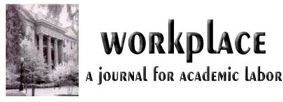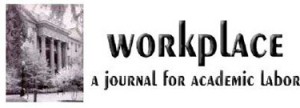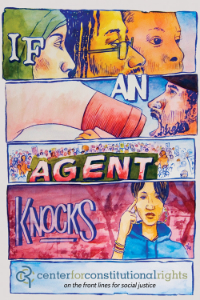Workplace: A Journal for Academic Labor
CFP: Academic Mobbing
Special Issue of Workplace 2012
Editors: Stephen Petrina & Wayne Ross
Editors of Workplace are accepting manuscripts for a theme issue on Academic Mobbing. Academic mobbing is defined by the Chronicle of Higher Education (11 June 2009) as: “a form of bullying in which members of a department gang up to isolate or humiliate a colleague.” The Chronicle continues:
If rumors are circulating about the target’s supposed misdeeds, if the target is excluded from meetings or not named to committees, or if people are saying the target needs to be punished formally “to be taught a lesson,” it’s likely that mobbing is under way.
As Joan Friedenberg eloquently notes in The Anatomy of an Academic Mobbing, the toll taken is excessive. Building on a long history of both analysis and neglect in academia, Workplace is interested in a range of scholarship on this practice, including theoretical frameworks, legal analyses, resistance narratives, reports from the trenches, and labor policy reviews. We invite manuscripts that address, among other foci:
- Effects of academic mobbing
- History of academic mobbing
- Sociology and ethnography of the practices of an academic mob
- Social psychology of the academic mob leader or boss
- Academic mobbing factions (fact + fiction) or short stories
- Legal defense for academic mob victims and threats (e.g., Protectable
- political affiliation, race, religion)
- Gender norms of an academic mob
- Neo-McCarthyism and academic mobbing
- Your story…
Contributions for Workplace should be 4000-6000 words in length and should conform to APA or MLA style.
If interested in co-editing or authoring, please contact Stephen Petrina (Stephen.petrina@ubc.ca) or Wayne Ross (wayne.ross@ubc.ca). This issue will ideally launch in September 2012.
 Follow
Follow



